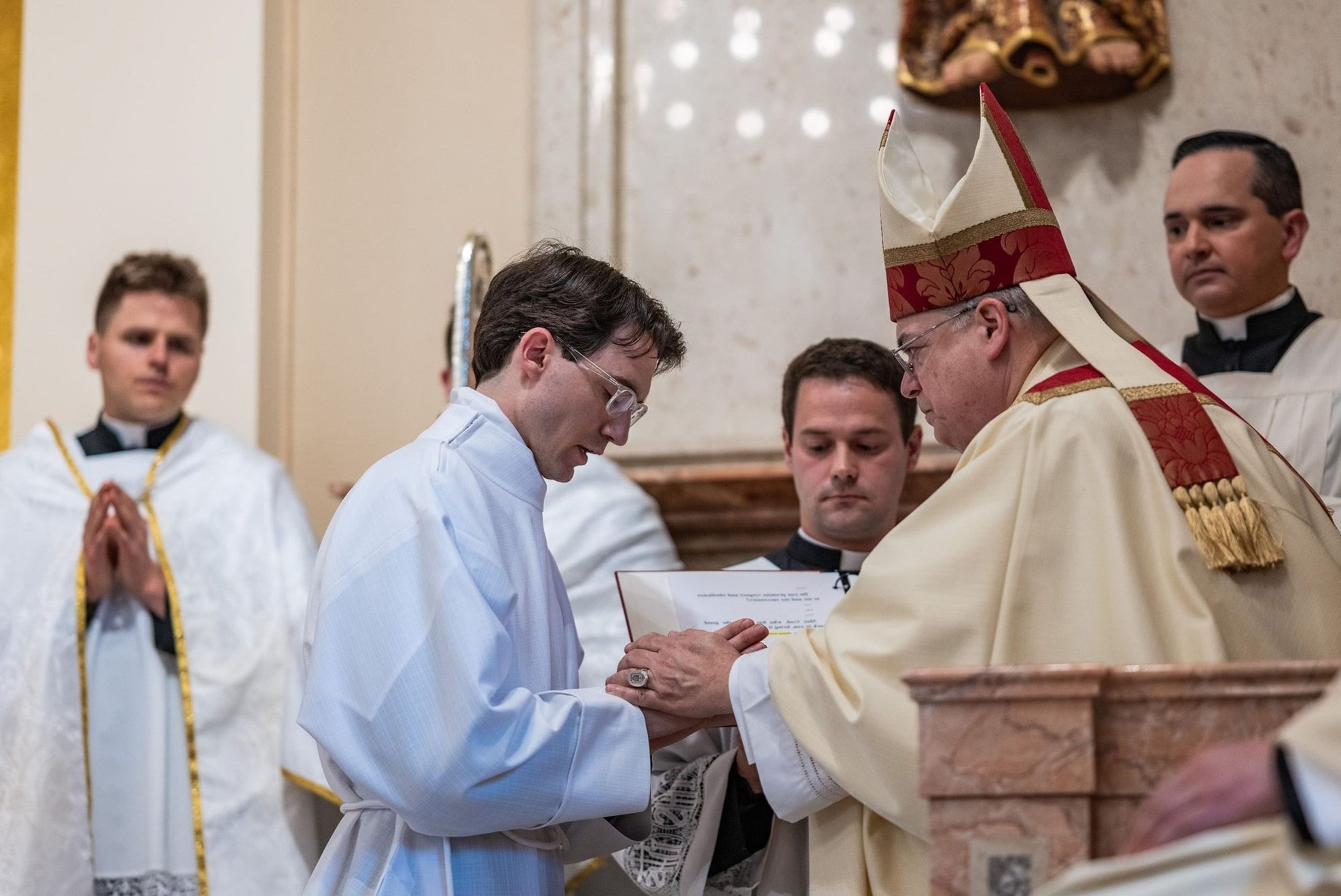
What is a transitional deacon? A transitional deacon is a man ordained as part of his journey to becoming a priest. This role, typically undertaken during the final year of theological studies, involves assisting at Mass, preaching, and performing certain sacramental duties. Transitional deacons serve as spiritual leaders and community servants, engaging in diaconal ministry by helping the poor, sick, and marginalized. Their formation includes extensive academic and practical training, preparing them for the demands of priestly ministry. Through their service, they embody values of humility, compassion, and dedication, inspiring others within the Church community.
What is a Transitional Deacon?
A transitional deacon is a man ordained to the diaconate as a step toward becoming a priest. This role is crucial in the Catholic Church, bridging the gap between layperson and priesthood.
-
Definition and Role: Transitional deacons assist at Mass, preach, and perform certain sacramental duties. They are in the final stage of preparation for priesthood.
-
Ordination Process: The journey begins with discernment, followed by seminary studies. Ordination to the diaconate typically happens in the final year of theological education.
Responsibilities of Transitional Deacons
Transitional deacons have a wide range of duties that prepare them for future priestly roles. These responsibilities help them grow spiritually and practically.
-
Responsibilities: They assist at Mass, serve as lectors and acolytes, preach, and perform sacramental duties like baptizing and anointing the sick.
-
Formation and Training: Extensive formation includes academic studies in theology and practical pastoral training. This prepares them for the demands of priestly ministry.
Diaconal Ministry and Community Engagement
Serving the community is a significant part of a transitional deacon's role. This hands-on experience is invaluable for their future as priests.
-
Diaconal Ministry: They serve the poor, sick, and marginalized, often working in parishes, hospitals, and other community settings.
-
Preaching and Homiletics: Trained in the art of preaching, they deliver sermons that inspire and guide the faithful, focusing on themes like faith, hope, and charity.
Liturgical and Sacramental Duties
Transitional deacons play a vital role in liturgical services and sacramental duties, enhancing the worship experience for the community.
-
Assisting at Mass: They serve as lectors, proclaiming the Word of God, and as acolytes, assisting the priest with various liturgical tasks.
-
Sacramental Duties: Authorized to baptize and anoint the sick, they must administer these sacraments with reverence and care.
Spiritual and Community Life
Engaging with the community and deepening their spiritual lives are essential aspects of a transitional deacon's journey.
-
Community Engagement: They participate in outreach programs, visit the sick, and support those in need, gaining a deeper understanding of community needs.
-
Spiritual Formation: Regular prayer, spiritual direction, and retreats help deepen their relationship with God and prepare them for priestly ministry.
Role Models and Challenges
Transitional deacons serve as role models and face various challenges that help them grow in their vocation.
-
Role Models: Their commitment and dedication inspire others to consider a similar path, embodying values of humility, compassion, and service.
-
Challenges and Opportunities: Balancing academic studies with practical ministry is challenging but offers growth opportunities, integrating theoretical knowledge with real-world application.
Support Systems and Formation Programs
A strong support system and specialized formation programs are crucial for transitional deacons as they navigate their roles.
-
Support System: Fellow seminarians, spiritual directors, and parish communities provide encouragement and help them navigate the complexities of their role.
-
Formation Programs: Workshops on preaching, sacramental ministry, and community engagement support their development and provide opportunities to share experiences.
Parish Involvement and Cultural Sensitivity
Active involvement in parish life and cultural sensitivity are essential for effective ministry.
-
Parish Involvement: Leading prayer groups, participating in parish councils, and assisting with liturgical planning help them integrate into the local Church community.
-
Cultural Sensitivity: Awareness of cultural nuances and traditions within the communities they serve ensures relevant and meaningful ministry.
Technology and Collaboration
Utilizing technology and collaborating with priests enhance the ministry of transitional deacons.
-
Technology and Ministry: Social media, digital resources, and online platforms expand their reach and impact, connecting them with the community.
-
Collaboration with Priests: Working closely with priests provides insights into priestly ministry and prepares them for future responsibilities.
Formation for Priesthood and Legacy of Service
The transitional diaconate is a critical step in the formation for priesthood, leaving a lasting legacy of service.
-
Formation for Priesthood: This period of intense spiritual and practical preparation ensures they are well-equipped for priestly ministry.
-
Legacy of Service: Their dedication and compassion inspire others, leaving a trail of blessings and a deeper sense of community as they transition into priesthood.
The Heart of Transitional Deacons
Transitional deacons play a vital role in the Catholic Church. They bridge the gap between seminary life and priesthood, taking on responsibilities like assisting at Mass, preaching, and performing sacramental duties. Their journey involves rigorous formation, both academically and spiritually, preparing them for the demands of priestly ministry.
These men serve their communities with compassion, humility, and dedication. They engage in diaconal ministry, helping the poor, sick, and marginalized. Their involvement in parish life, community engagement, and spiritual formation shapes them into well-rounded leaders.
Transitional deacons also face challenges, balancing studies with practical ministry. However, the support from fellow seminarians, spiritual directors, and parish communities helps them navigate these complexities.
Ultimately, transitional deacons leave a lasting legacy of service and faith, inspiring others to follow in their footsteps and ensuring the Church continues to thrive.
Was this page helpful?
Our commitment to delivering trustworthy and engaging content is at the heart of what we do. Each fact on our site is contributed by real users like you, bringing a wealth of diverse insights and information. To ensure the highest standards of accuracy and reliability, our dedicated editors meticulously review each submission. This process guarantees that the facts we share are not only fascinating but also credible. Trust in our commitment to quality and authenticity as you explore and learn with us.


